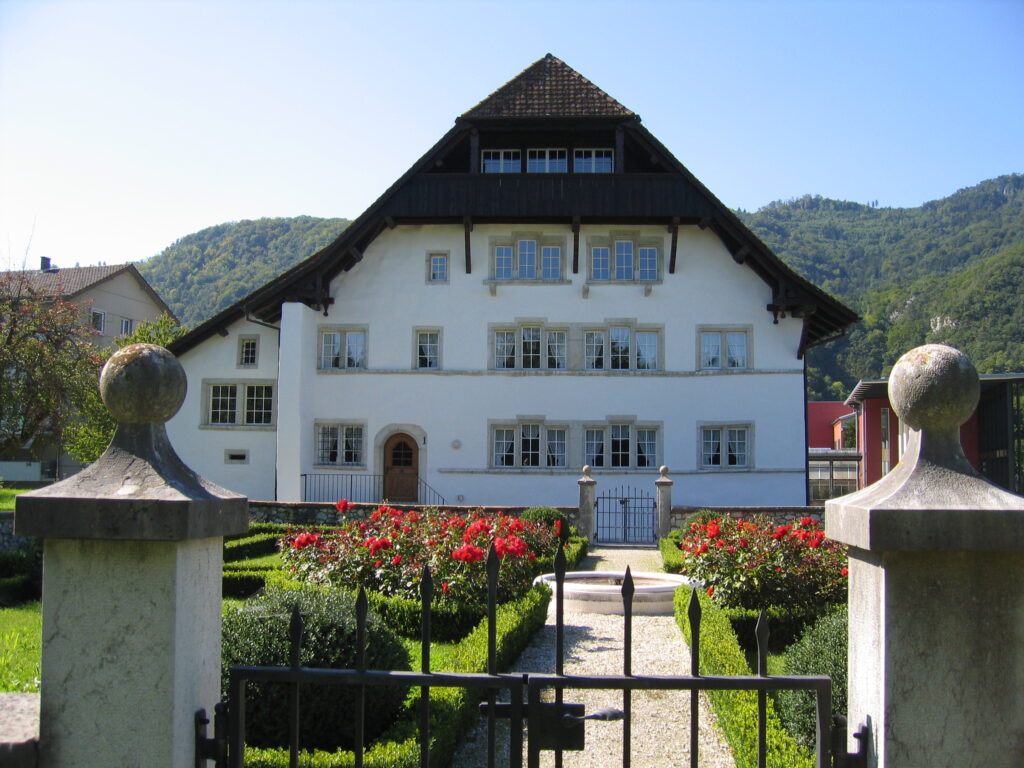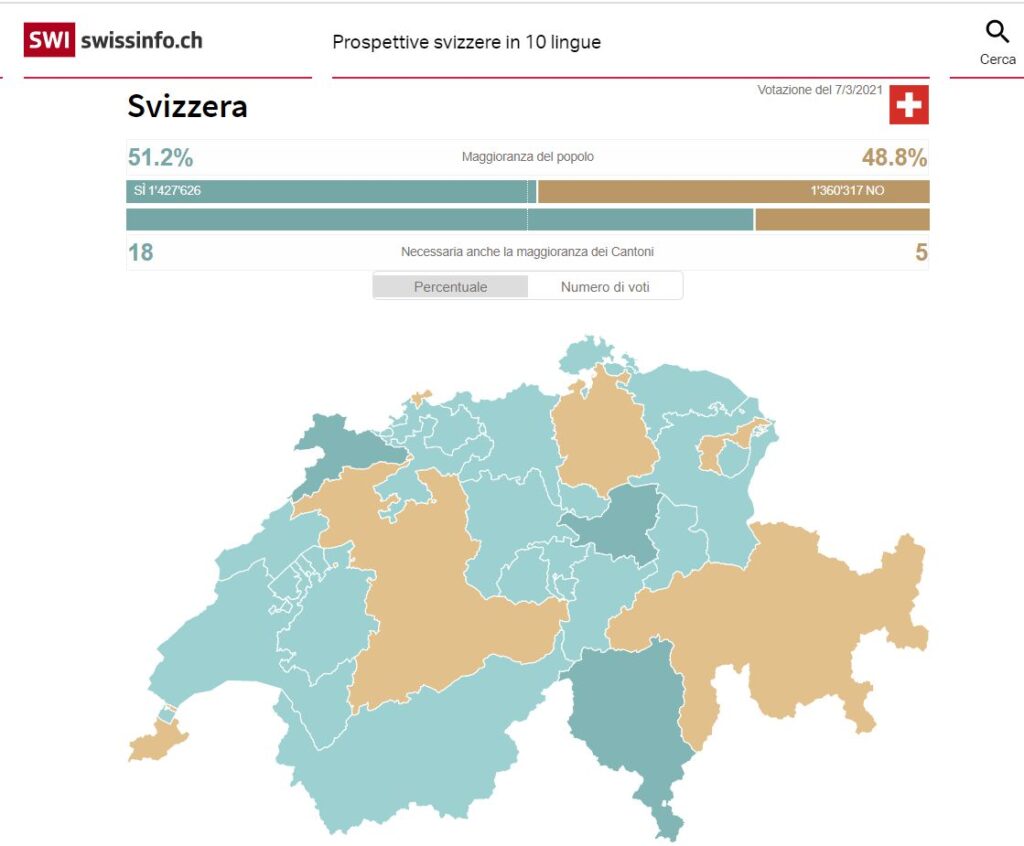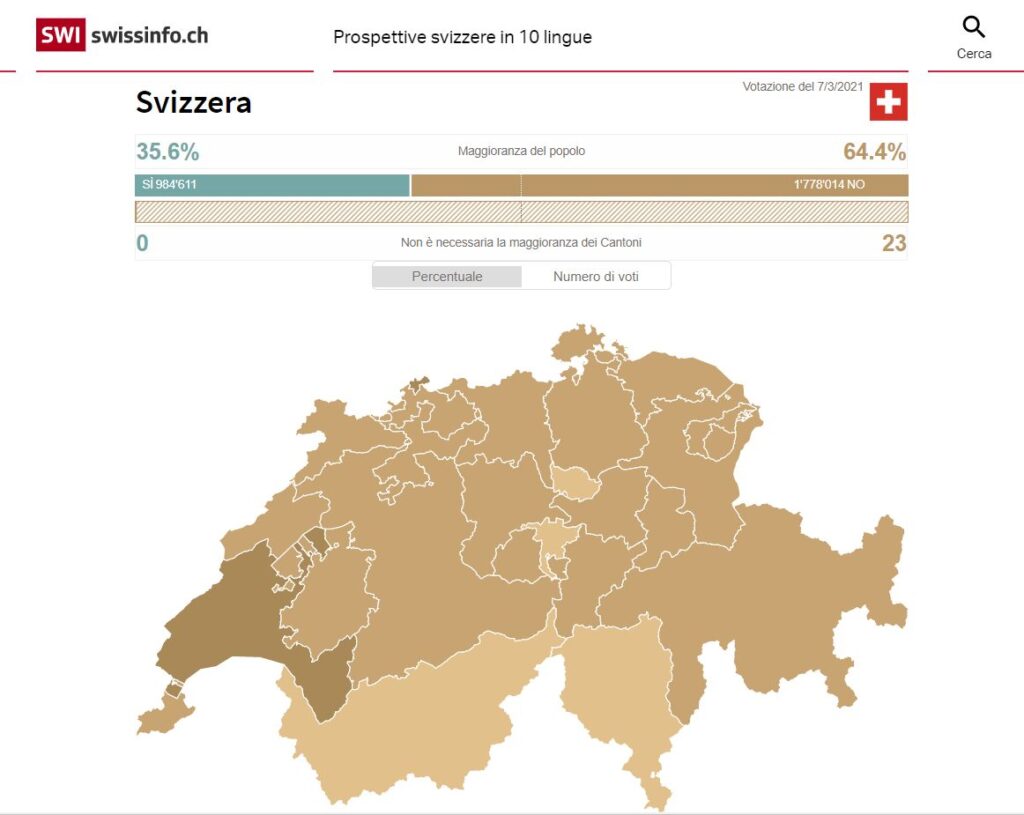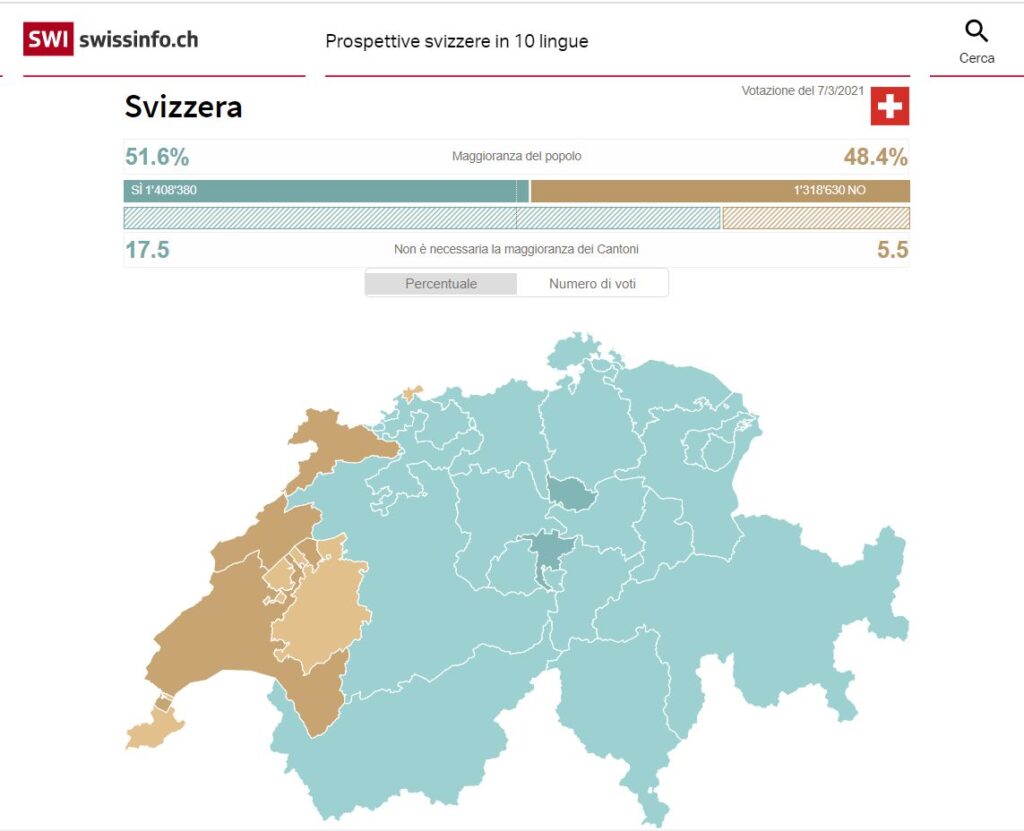The Swiss people and cantons liquidate the burqa and niqab
51.2 percent of Swiss voters and 20 out of 26 federal states approved the initiative “Yes to the ban on facial concealment” in the March 7 session
The referendum “Yes to the ban on concealing one’s face”, defined as “anti-burqa” by the press and by Swiss and non-Swiss observers, and already in force at regional level in the Italian-speaking Ticino and in the Canton of St. Gallen, was approved by the majority of Swiss voters in the voting session of Sunday, March 7, 2021.
According to the final results, the text of the constitutional amendment promoted by the more conservative Right and opposed by the Federal Council, has obtained 51.2% of the support of the voters and the adhesion of 20 of the 26 cantons, that is all except Geneva, Basel City, Zurich, Bern, Appenzell Ausserrhoden and Graubünden.
The three topics up for a vote in Switzerland on March 7, 2021
In 2009, the Swiss citizenry had also approved an initiative against the construction of minarets, with 57.5 percent voting in favor.
The call to the polls stipulated that men and women, in public places in Switzerland, particularly on the streets, on transport and in offices, in restaurants, stores and soccer stadiums, will not be allowed to wear veils, headgear or balaclavas that fully cover their faces.

A successful initiative of the well-known Egerkingen Committee
The outcome of the referendum will now have to be incorporated into legislation. The measure refers to all forms of facial concealment in public. In particular, the people most affected by the measure are those of Islamic faith and female gender, who are used to wear the full veil (niqab or burqa)
The idea of promoting the referendum came from the Committee of Egerkingen, a town of about three thousand inhabitants in the District of Gäu in the canton of Solothurn, already at the origin of the initiative against minarets twelve years ago.
Switzerland and the “fantastic four” of direct democracy
The Ethics of Competitiveness and the Spirit of Federalism
Waldstätte and the “forest” cantons at the dawn of Switzerland…
The proposal to hold a referendum had been submitted in 2016 by the aforementioned political group, which included several members of the Schweizerische Volkspartei (SVP), a bourgeois right-wing party in Italian called Unione Democratica di Centro (UDC), the largest in the National Council and currently in government, but also by other reactionary groups, several politicians from center-right and centrist parties, as well as a group of liberal feminists and Muslims.

The poster of the initiative against facial concealment (German)


The slogan “Stop Radical Islamism!” worked.
“Stop Radical Islamism!” This was the slogan used to promote the yes referendum campaign. The phrase accompanied a photograph of a woman’s face wearing a black niqab and her eyes covered by a pair of sunglasses.
The Presidency of the Swiss Confederation from 1848 to the present day
Swiss monuments? A “hidden” treasure to be enhanced…
Athenian democracy? Revive between Glarus and Appenzell…
“The Swiss people wanted to confirm the democratic model based on Judeo-Christian values (…) that makes the success of Switzerland for seven hundred years,” said to the agency Keystone-ATS Yohan Ziehli, member of the initiative committee and research assistant at the UDC.
Also for Marco Chiesa, president of the SVP, the “‘yes’ vote on Sunday is a clear signal against radical Islam, against masked thugs and in favor of a peaceful cohabitation in Switzerland. Many cantons and other countries have already adopted similar measures and also the European Court of Human Rights has deemed acceptable the prohibition of the full veil“.

‘Privatized’ electronic identity law rejected
Voters in Switzerland also rejected a new rule governing Bern’s proposed new digital identity system. The result is a major blow to the plans of parliament and the government, which clearly were unable to overcome people’s fears about personal data protection.
The final results show that on Sunday, March 7, 64.4 percent of voters voted against the planned law. The rejection rate among the cantons ranged from 70.7 percent to 55.8 percent.
What was at stake was the creation of the legal basis for a digital identity verification system, which was to be authorized and controlled by the state, but provided predominantly by private companies.
The Europe of small states and a barely sketched federalism…
The brochure “The Confederation in brief” 2021 is available for download
swisstopo digital geodata available free of charge for use
The single access point was intended to simplify the use of online services offered by commercial enterprises and contact with public institutions through e-government channels.
Daniel Graf of the referendum committee said that voters did not vote against the idea of a digital identity, but only against the solution proposed by the Federal Council.
Green MP Sibel Arslan, who also opposed the bill, said voters made it clear that they wanted an eID provided by the government and under democratic control.

“Yes” to trade partnership agreement with Jakarta
Voters in Switzerland gave the green light to a free trade agreement with Indonesia, however, with a slim majority of 51.6 percent.
The vote was more uncertain than expected after Zurich (the canton with the most voters) showed its cards last, sealing the referendum’s fate.
The main pockets of resistance were the French-speaking cantons of Geneva (where many commodity companies are based) and Vaud (home of food giant Nestlé).
Palm oil was the crucial element in the referendum on the free trade agreement between Switzerland and Indonesia.
Switzerland-Indonesia: it is cooperation in the four-year period 2021-2024
The agreement, approved by the Swiss people through a referendum, aims to facilitate trade with the Southeast Asian country and will result in the elimination of customs duties on Swiss exports of cheese, pharmaceutical products and watches.
Indonesia, for its part, will be able to sell its industrial products on the Swiss market without import taxes.
Tariff reductions are also foreseen for some agricultural products, in particular palm oil, of which Indonesia is the world’s largest producer and exporter.







